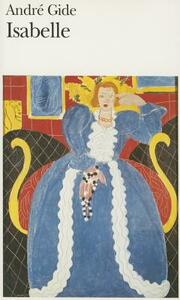Take a photo of a barcode or cover
dark
mysterious
fast-paced
Plot or Character Driven:
A mix
Strong character development:
No
Loveable characters:
No
Diverse cast of characters:
No
Graphic: Ableism, Misogyny
Moderate: Body shaming
“The word Ennui is doubtless too weak to describe the fits of intolerable depression to which I have been subject ever since I can remember; they overcome us suddenly; something undefinable in the air starts them; a second before, all was smiling, all was enjoyable; suddenly a murky vapour rises from the depths of the soul and interposes itself between desire and life; it forms a kind of livid screen that separates us from the rest of the world, whose warmth, love, colour and harmony can now only reach us as a refracted, warped, transposed abstraction; we are aware of things, but they fail to move us…”
That's a short novel of barely 170 pages or a short story.
But the atmosphere is a bit like the novel of Grand Meaulnes by Alain Fournier: a castle lost in the moor where a family of impoverished nobles lives and where Isabelle, the young baroness, appears to fascinate the storyteller of the story with her beauty 'history. So we can dream, and that's what I did.
But the atmosphere is a bit like the novel of Grand Meaulnes by Alain Fournier: a castle lost in the moor where a family of impoverished nobles lives and where Isabelle, the young baroness, appears to fascinate the storyteller of the story with her beauty 'history. So we can dream, and that's what I did.
kudos to andre gide for lowkey disapproving lacase falling in love with a 10 year old portrait. short and sweet, just the piece to read when you're feeling guilty at 3 am for not reading a few days. on the other hand, this review is exactly the proof you need to say that i lack in critical thinking skills and reading time and respect for well known authors.
A near-perfect novella on the heartache of discovering that one’s idealized love -- witnessed from afar as a projection of our own unrealized ideal self -- is in reality a gilded delusion, concealing a harsh reality that is nothing like our concocted fantasy-image. We have all had moments when we place another on a pedestal, not only idolizing them, but also fulfilling our own deep need to worship another person as an object of desire, as we ourselves wish to be adored. Gide shows us that the most crushing blow is not a failure to encounter our object of desire, but actually TO OBTAIN IT, thus ensuring that the reality of our experience will never live up to the expectations of our fantasies. I can't think of a better literary example of Lacan's theory of the objet petit a. As usual, Gide’s prose is gorgeous, fluid, and seemingly effortless. A must-read from one of my favorite writers.

